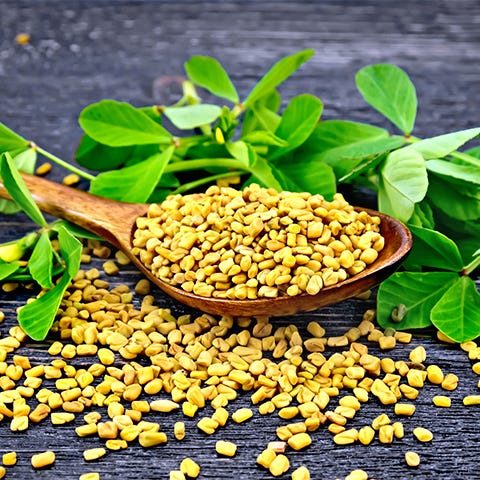
Fenugreek. It may sound like an exotic European destination, but this little herb is one of the oldest medicinal plants in the world. Native to the Mediterranean region, southern Europe and western Asia, its benefits were first reported as far back as 1500 BC in Egypt[1].
It’s no wonder fenugreek has long been heralded, as it’s a herb that has many benefits for your health and wellbeing. It has been traditionally used in Western Herbal Medicine to help increase breastmilk production in nursing mothers (making it a galactagogue, or a substance that promotes or increases the flow of a mother's milk).
A galactagogue of mystery
Galactogogues have been traditionally used in cultures all over the world. While the mechanism of action is not well understood, one theory is that fenugreek stimulates sweat production and that, because breasts are modified sweat glands, fenugreek increases milk production through increased sweat production[2].
So, if you’re a nursing mother, how can you get more fenugreek in your life? It can be taken in tea form, although it’s often considered to have a bitter taste. Another way to consume it is by adding fenugreek sprouts to meals – for example, curries and salads. You can even consume the seeds raw, by swallowing a small amount whole with water, although again, be warned that they have a strong taste.
Additional breastfeeding support
Fenugreek is a key ingredient in Swisse Ultinatal Breastfeeding Support. This is a premium quality formula specifically tailored with fenugreek, traditionally used in Western Herbal Medicine to help increase breastmilk production and B group vitamins to provide nutritional support for mother and baby during the breastfeeding cycle.
Always read the label. Use only as directed. Vitamin supplements should not replace a balanced diet. If symptoms persist consult your healthcare professional. 0-6 months: exclusive breastfeeding is recommended.
References:
- Ahmad et al, 2016. Fenugreek a multipurpose crop: Potentialities and Improvements. Saudi Journal of Biological Sciences, 23, 300–310.
- Hechtman L 2013, Clinical Naturopathic Medicine.
